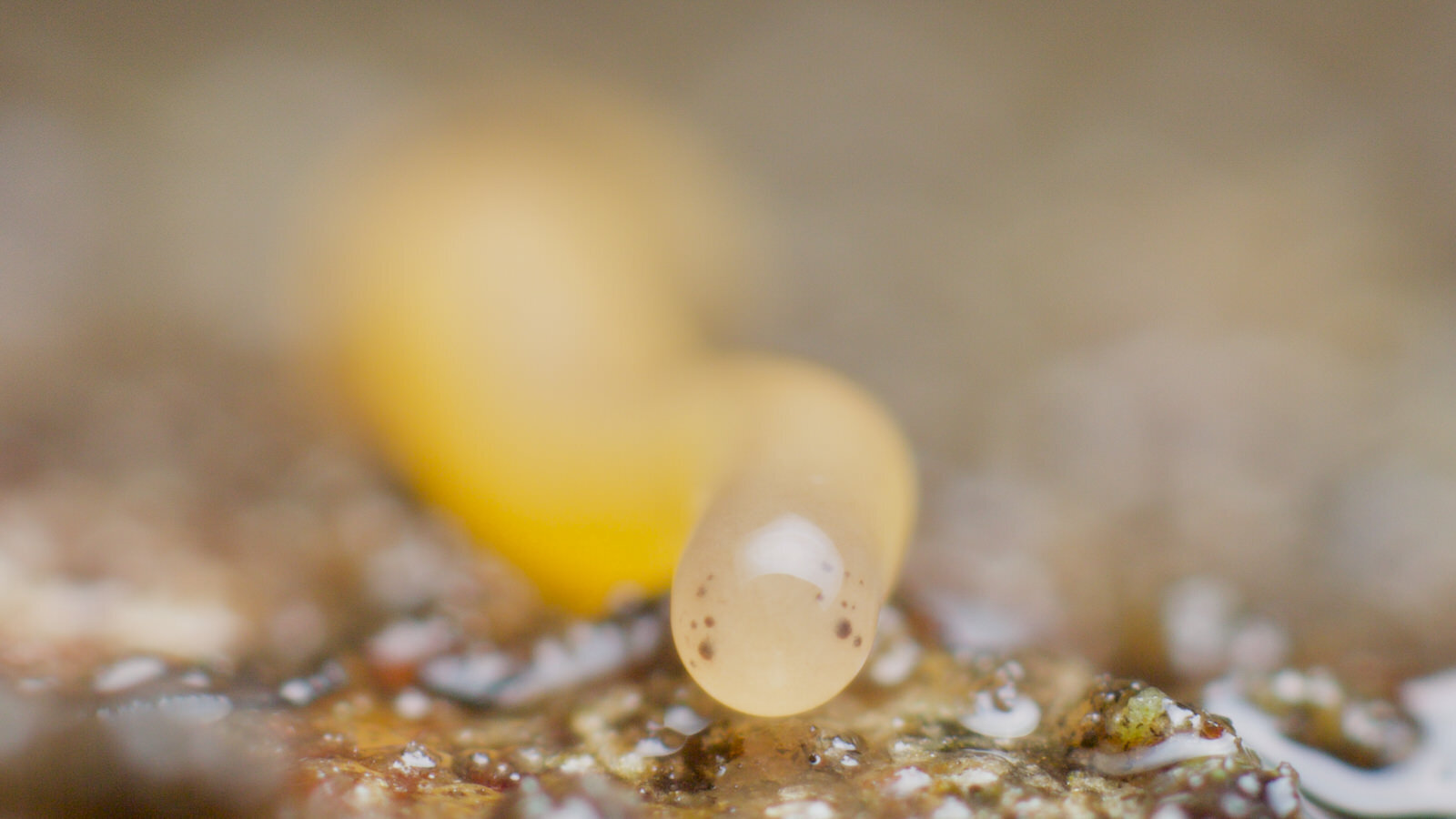
Nemertea, nemerteans or ribbon worms (terrestrial)
Nemerteans are otherwise known as ribbon worms, proboscis worms or more ominously, smiling worms. They are usually aquatic and predatory and can be anything from a few millimetres big, up to in excess of 30 metres long (Lineus longissimus). As with most small marine animals, they will generally find a way to venture onto land, and nemerteans are no exception. There are Australian species that live inter-tidally, bridging the gap between marine and terrestrial in the coastal tropics of Australia. And in New Zealand, a usually littoral Geonemertes species of nemertean has also been found living terrestrially on some of the Auckland Islands in New Zealand. And so, as may be evident by now, we move on to the reason for this page: Terrestrial nemerteans. And they are rather strange animals.
All nemerteans have an eversible proboscis, which is definitely one of the grosser things to watch with a magnifying glass. At rest, the proboscis lies in a cavity along almost the full length of the body. When attacking prey, the front end of the animal instantaneously everts an enormous white mass of proboscis that is capable of completely covering the possible food. Some species use sticky secretions to capture prey, while others employ multiple, sharp stylets to pierce prey and inject toxic secretions. After subduing their prey, it can be swallowed or sucked up. It can be retracted almost as quickly. Their proboscis can also be employed as an escape mechanism, being everted and anchoring to the substrate before being used to quickly pull the nemertean away from trouble.
Argonemertes sp. (2) Slapton marsh, S Devon Sept 2016
Argonemertes sp cf. A. australiensis. East Portlemouth S. Devon Oct 2016
Eyes. Argonemertes sp cf. A. australiensis. East Portlemouth S. Devon Oct 2016
All nemerteans travel on a trail of their own mucus, making them initially easy to confuse for a slug or a flat worm as I did once, getting the shock of my life when it everted all over a woodlouse.
They also share an ability with the flat worms to have a body that can thicken and shorten when disturbed or at rest, and telescope and become thinner when moving. They can also have hundreds of the light-sensitive simple pigment-cup eyes, like the flatworms.However, unlike the flat worms, nemerteans have a kind of circulatory system as well as an anus.
As exotic species, they have been transported into the northern hemisphere by human activity. The UK has at least three species, probably from Australia originally. First observed around twenty years ago, they are rapidly expanding their south-west and southern range.
Argonemertes sp cf. A. australiensis. East Portlemouth S. Devon Oct 2016
Argonemertes australiensis egg case with immature A. australiensis in the foreground, Tasmania May 2016
